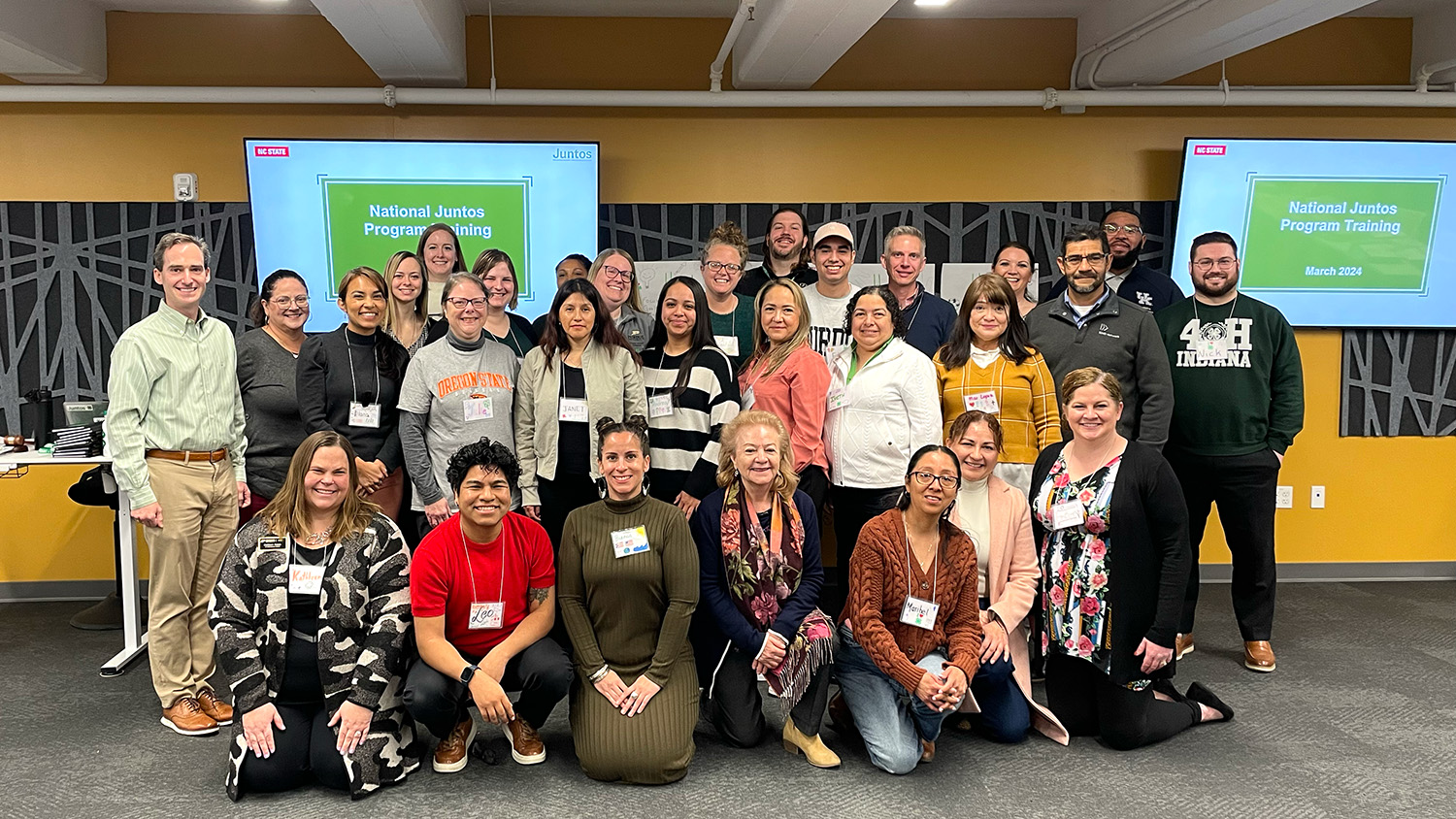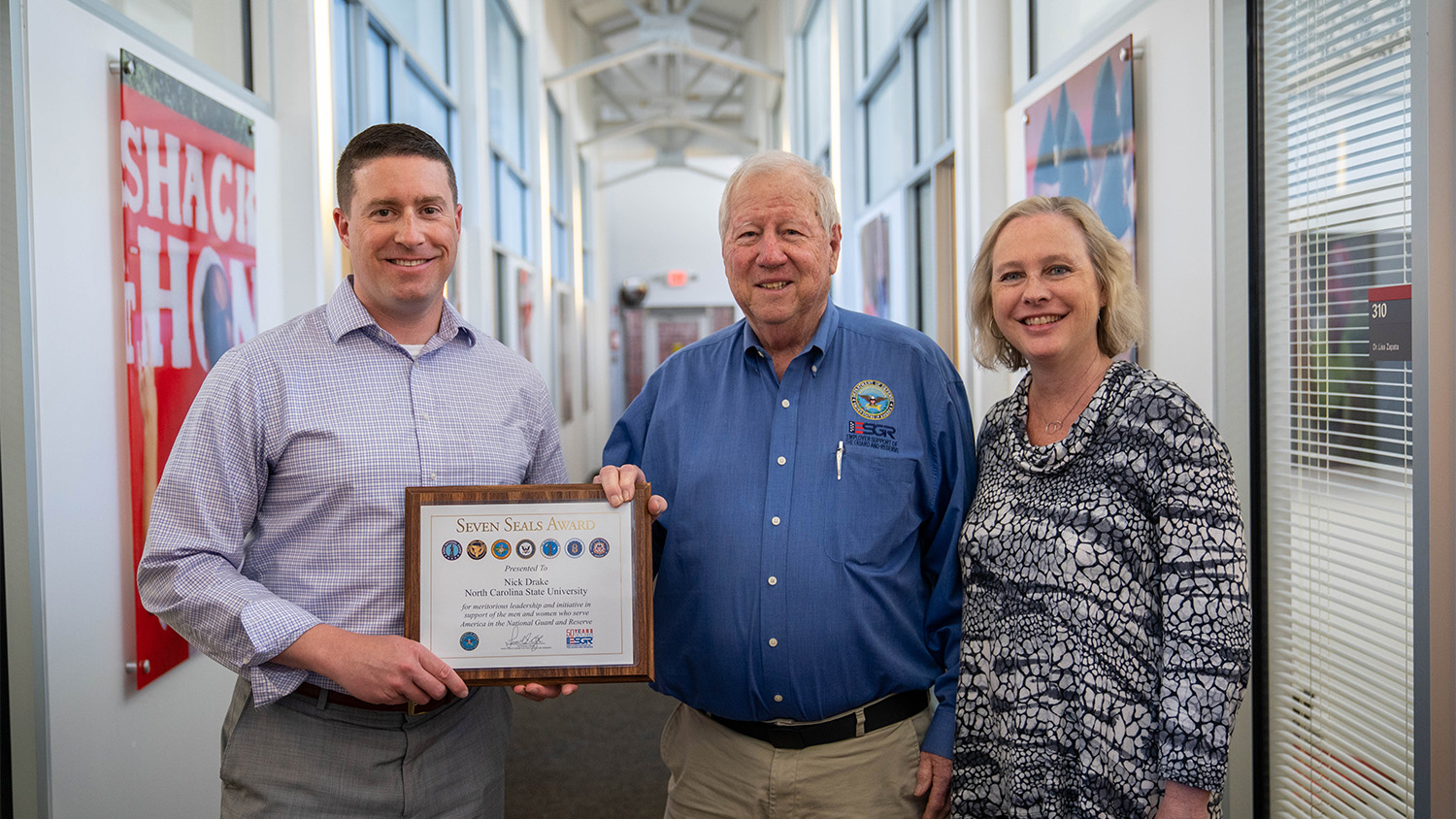NC State Juntos Leads National Training in Indiana

At NC State’s Juntos program, staff members work with Latino(a)x/e students and families in several central and eastern North Carolina counties to help these students prepare for post-secondary education opportunities.
Juntos is the Spanish word for “together,” and the program works to unite community partners and school systems with these students and their parents or guardians so they have the knowledge, skills and resources to ensure high school graduation and “broaden post-secondary career and academic opportunities.”
Diana Urieta, National Juntos’ director and co-developer, and Bianca Wall, a national trainer and Juntos program consultant based at NC State, recently traveled to Lafayette, Indiana, to give a three-day training on the Juntos Program to professionals representing Extension, 4-H, regional and county leaders, teachers, educational non-profit organizations, Juntos parents, and Juntos coordinators from Indiana, Colorado, and Idaho.
“Specifically in Indiana, we saw a lot of growth,” Wall said. “They currently have nine counties where they have the program, and they started just at the beginning of the pandemic. So it was incredible to see the growth that they’ve been able to have.”

Juntos has four components: family engagement, Juntos 4-H clubs, success coaching and summer academy.
It begins with a five-to-six-week workshop for middle or high school families and continues throughout the school year with bimonthly family nights, Juntos 4-H clubs, and individual success coaching. The program year ends with the Juntos Summer Academy, which takes place at the Land-grant University. NC State was the first to host a Juntos Academy back in 2010.
At the national training in Indiana, 28 individuals received the full Juntos manual training to support the implementation and sustainability of their own Juntos Program in their state and local communities. .
“In Indiana this time, it was an incredible experience, because we were able to see parents who had at one time been participants in the program there in one of the counties,” Wall said. “And now they actually came to be trained so they can implement the program themselves and assist the coordinator in their county.. that’s full circle, something we want to see grow in the future in more Juntos states.”
For Heather VonDielingen, Purdue University’s Extension 4-H Educator for Juntos 4-H, having Wall and Uireta present on how to tell the 4-H story to a new audience was crucial, as the Indiana 4-H program looks to share its success with other states.
“We can also learn why there have been challenges for other states when people have preconceived notions about what 4-H is or could be,” VonDielingen said. “I think that’s really good when you hear other states’ perspectives. And it helps us keep in mind as we try to bring Juntos to new communities, there might already be some preconceived notions about what 4-H is. A lot of people think it’s cows, sows and plows. It’s a youth development program, and you can develop youth through many different projects and programs.”
Ultimately, the training, and Juntos’ continued focus, is on expanding the program’s reach into more states and counties so that more students and families can benefit from its impact.
In that regard, the Juntos staff at the training are ready to carry the lessons learned from Wall and Urieta back to their communities.
“The value was in the people that they are,” said Edwin Flores, the Juntos 4-H success coach for Jackson County, Indiana. “We were able to learn from them and see that we’re going in the right direction here and we could do a lot different or a lot better in this area, or just evolve and have new ideas in this area. They’re amazing people, and it was amazing being with them and learning from their experiences, but also just seeing how Juntos works in a different state, but also hearing other stories about other states around the country and how they have implemented Juntos.”
- Categories:


